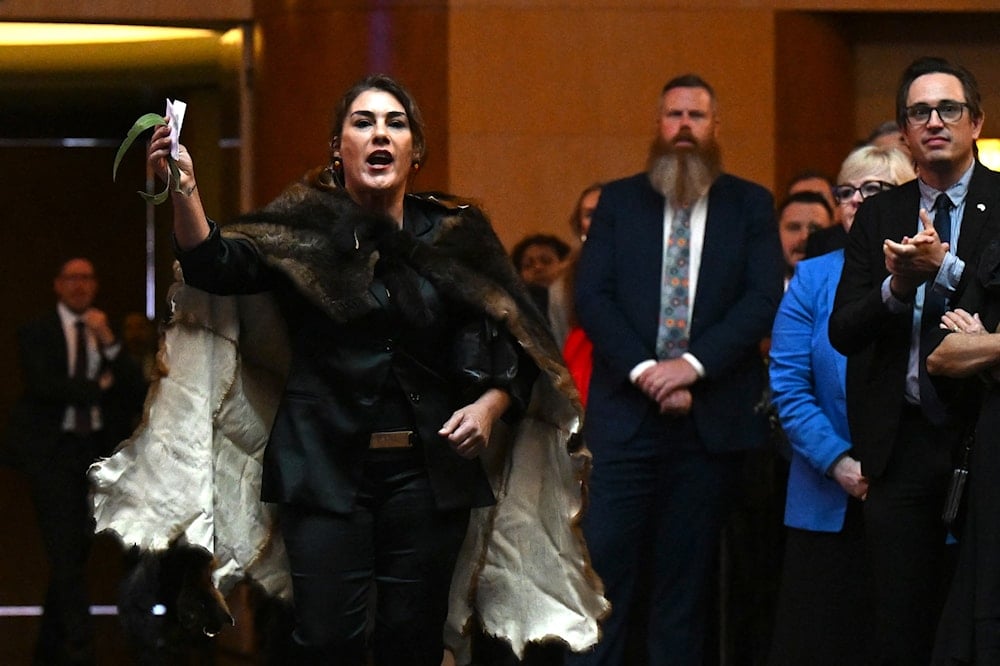Indigenous Australian lawmaker censured for heckling King Charles
Censures are largely symbolic gestures used by parliament to express dissatisfaction with a member's conduct.
-

Australian Senator Lidia Thorpe disrupts proceedings as Britain's King Charles III and Queen Camilla attend a Parliamentary reception at Parliament House in Canberra on October 21, 2024 (AFP)
Australia's parliament censured an Indigenous lawmaker on Monday after she heckled King Charles during his October visit to Canberra, criticizing the legacy of European settlement.
The Senate passed the censure motion with 46 votes in favor and 12 against. While the motion carries no formal penalties, it reflects disapproval of the lawmaker's actions.
Independent Senator Lidia Thorpe interrupted the King's visit to parliament by shouting, “This is not your land, you are not my king,” denouncing what she described as the "genocide" of Indigenous Australians by European settlers. She also turned her back on the monarch as dignitaries stood for the national anthem.
The censure motion labeled Thorpe’s behavior as “disruptive and disrespectful,” further stating that the Senate no longer deemed it “appropriate” for her to participate in any parliamentary delegations for the remainder of this term.
Censures are largely symbolic gestures used by parliament to express dissatisfaction with a member's conduct.
Speaking to the national broadcaster ABC, wearing a gold necklace inscribed with "Not My King," Thorpe dismissed the censure, stressing that she would repeat her actions if the monarch returned.
"I will resist colonisation in this country. I swear my allegiance to the real sovereigns of these lands: First Peoples are the real sovereigns," she underlined.
Green Senator Mehreen Faruqi opposed the censure, defending Thorpe’s actions as her way of recounting Australia’s history.
Thorpe is known for her vocal opposition to the monarchy. In 2022, during her swearing-in ceremony, she raised a fist in defiance as she reluctantly pledged allegiance to Queen Elizabeth II, Australia’s head of state at the time.
Australia, a British colony for more than a century, witnessed the displacement of entire Aboriginal communities and the killing of thousands of Indigenous Australians.
Though the country gained de facto independence in 1901, it remains a constitutional monarchy with King Charles as its current head of state.
The debate over becoming a republic resurfaced during King Charles’ visit earlier this year but remains politically stagnant. A recent poll revealed that Australians are evenly divided on the monarchy: a third support its continuation, a third advocate for a republic, and a third are indifferent.
In a 1999 referendum, Australians narrowly rejected the idea of replacing the monarchy, amid disputes over whether a president would be chosen by parliament or the public.
Read more: Pacific islands accuse Australia of 'exporting climate destruction'

 3 Min Read
3 Min Read








